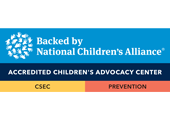Child Abuse
Signs and Symptoms of Abuse
Below are indicators of child abuse that can include, but are not limited to, these signs. Some signs that a child is experiencing violence or abuse are more obvious than others. Trust your instincts. Suspected abuse is enough of a reason to get help.
Unexplained injuries.
Visible signs of physical abuse may include unexplained burns or bruises in the shape of objects. You may also hear unconvincing explanations of a child’s injuries.
Changes in behavior.
Abuse can lead to many changes in a child’s behavior. Abused children often appear scared, anxious, depressed, withdrawn or more aggressive.
Returning to earlier behaviors.
Abused children may display behaviors shown at earlier ages, such as thumb sucking, bed wetting, fear of the dark or strangers. For some children, even loss of acquired language or memory problems may be an issue.
Fear of going home.
Abused children may express apprehension or anxiety about leaving school or about going places with the person who is abusing them.
Changes in eating.
The stress, fear and anxiety caused by abuse can lead to changes in a child’s eating behaviors, which may result in weight gain or weight loss.
Changes in sleeping.
Abused children may have frequent nightmares or have difficulty falling asleep, and as a result may appear tired or fatigued.
Changes in school performance and attendance.
Abused children may have difficulty concentrating in school or have excessive absences, sometimes due to adults trying to hide the children’s injuries from authorities.
Lack of personal care or hygiene.
Abused and neglected children may appear uncared for. They may present as consistently dirty and have severe body odor, or they may lack sufficient clothing for the weather.
Risk taking behaviors.
Young people who are being abused may engage in high risk activities such as using drugs or alcohol or carrying a weapon.
Inappropriate sexual behaviors.
Children who have been sexually abused may exhibit overly sexualized behavior or use explicit sexual language.
Physical changes.
Children who seem to have difficulty walking/sitting, have injuries to mouth, genital or anal areas (bruising, swelling, sores, rash, sudden changes) and/or excessive itching in genital or anal area due to infection.







